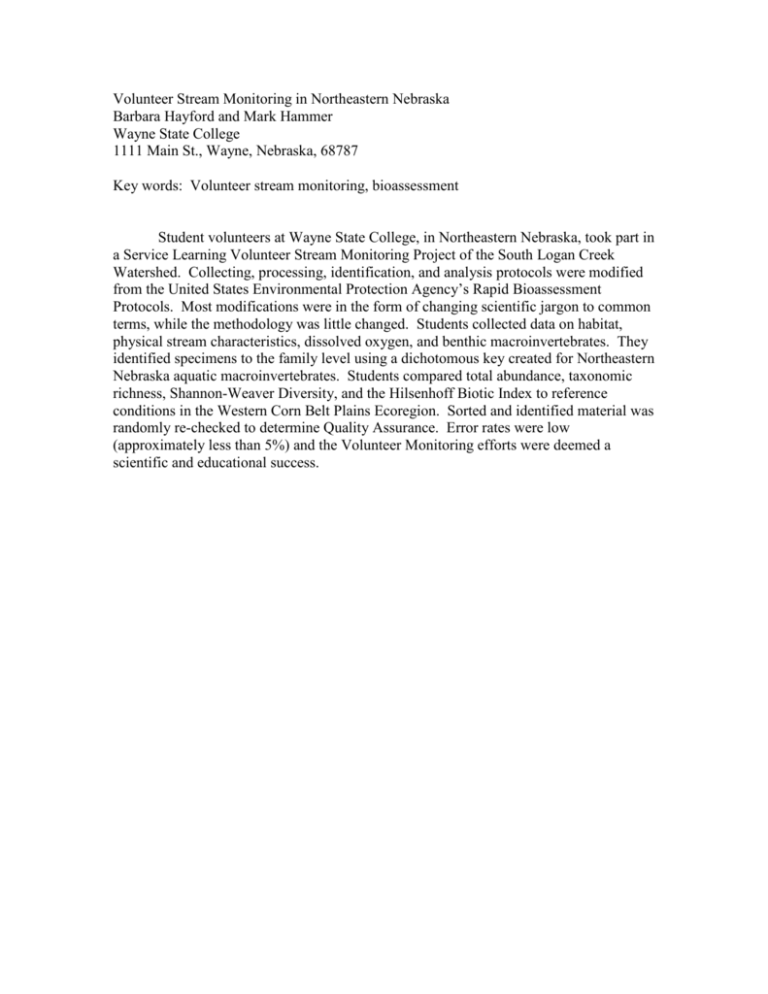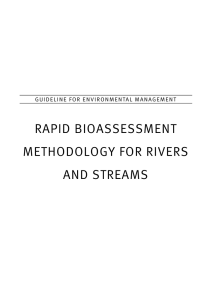Abstract
advertisement

Volunteer Stream Monitoring in Northeastern Nebraska Barbara Hayford and Mark Hammer Wayne State College 1111 Main St., Wayne, Nebraska, 68787 Key words: Volunteer stream monitoring, bioassessment Student volunteers at Wayne State College, in Northeastern Nebraska, took part in a Service Learning Volunteer Stream Monitoring Project of the South Logan Creek Watershed. Collecting, processing, identification, and analysis protocols were modified from the United States Environmental Protection Agency’s Rapid Bioassessment Protocols. Most modifications were in the form of changing scientific jargon to common terms, while the methodology was little changed. Students collected data on habitat, physical stream characteristics, dissolved oxygen, and benthic macroinvertebrates. They identified specimens to the family level using a dichotomous key created for Northeastern Nebraska aquatic macroinvertebrates. Students compared total abundance, taxonomic richness, Shannon-Weaver Diversity, and the Hilsenhoff Biotic Index to reference conditions in the Western Corn Belt Plains Ecoregion. Sorted and identified material was randomly re-checked to determine Quality Assurance. Error rates were low (approximately less than 5%) and the Volunteer Monitoring efforts were deemed a scientific and educational success.






